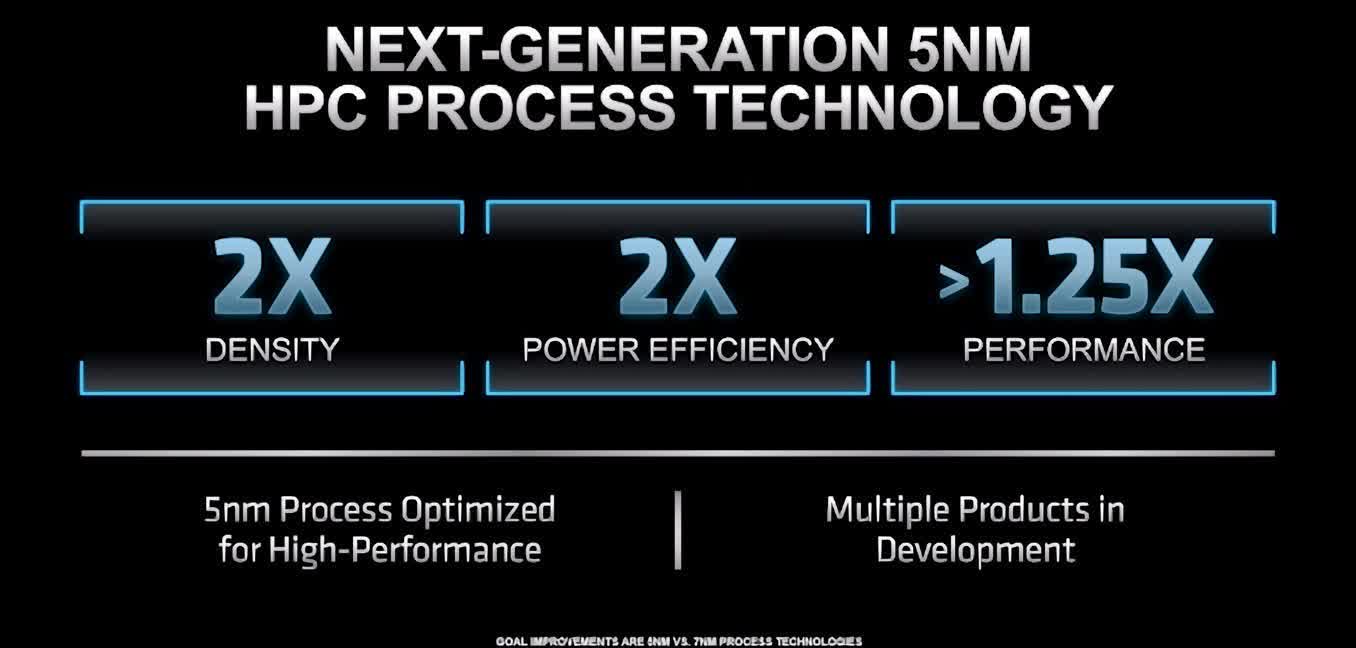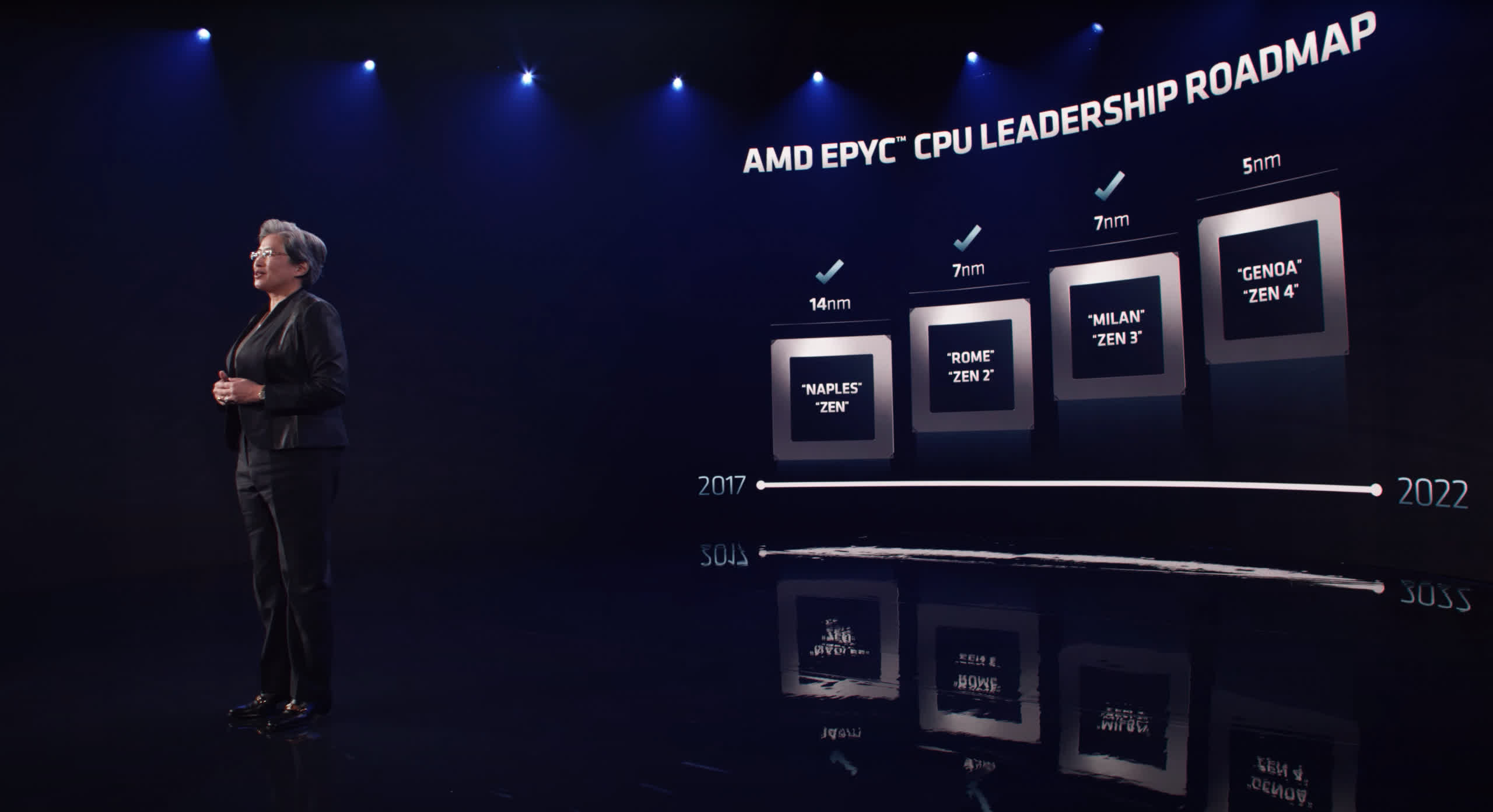In a nutshell: Team Red revealed it has a couple of heavy-duty processors coming out over the next couple of years. One has 96 cores targeted toward high-end general-purpose workstations. The other is a 128-core monster for use in data centers running cloud-based applications. Both are based on TSMC's 5nm process.
During its Accelerated Data Center keynote on Monday, AMD unveiled the roadmap for its upcoming fourth-generation Epyc silicon. AMD chief Lisa Su notes the two HPC processors are aimed at enterprise and data center applications. Reuters notes that Meta (Facebook) just joined long-time AMD partners Microsoft (Azure), Amazon (AWS), and Alphabet (Google Cloud) and will be among the first companies to use the chips.
The new CPUs should offer twice the density and power efficiency while supplying 1.25 times or more performance.

The first chip is codenamed "Genoa." Designed for heavy-duty, general-purpose computing, Genoa features 96 Zen 4 cores thanks to TSMC's 5nm process and comes with DDR5 and PCIe 5.0 support. When announced in 2019, Genoa silicon was expected to land sometime this year but was delayed by the on-going global supply-chain issues. Su said Genoa should start arriving in 2022. She did not have a firmer launch date, but since AMD has already sent out samples, it should probably be sooner in the year than later.
The second chipset, codenamed "Bergamo," is designed with cloud-based data centers in mind. The silicon is still built on the same 5nm process, but AMD has optimized it for cloud-native computing. As such, it has designated the architecture as Zen 4c. At its essence, Zen 4c is compatible and functionally the same as its cousin but optimizes cache hierarchy to allow a higher core/thread density.
Bergamo packs a whopping 128 Zen 4c cores on a single CPU. Like Genoa, it will also support DDR5 and PCIe 5.0, CXL 1.1, RAS, and Infinity Guard security. It will also be socket compatible (SP5) with Genoa. However, it should offer "breakthrough performance per socket." Su said Bergamo silicon should start shipping in the first half of 2023.
Team Red also unveiled its third-generation Milan-X server CPUs, which will sport up to 768MB of L3 cache. We should see those hitting the market in Q1 2022.
